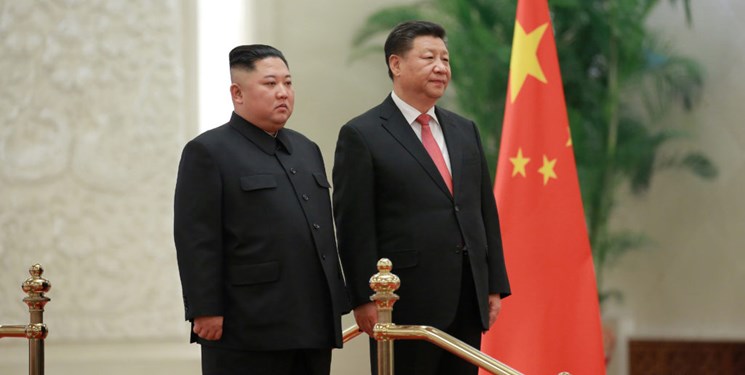Dr. Reza Azizi in an interview with the site of Strategic Council on Foreign Relations touched upon the recent measure taken by China and Russia to veto a resolution against North Korea at the United Nations Security Council and the critiques made by an American authority who was saying that Beijing and Moscow were not willing to cooperate and to contain North Korea and spelled out:” we have already been witnessing the accompaniment of Russia and China with the U.S. concerning imposition of sanctions on North Korea in order to manage the country’s nuclear arsenal, because the two countries are not willing that another country attends in the Nuclear Club”.
He added:” Yet, new conditions are emerging in international system that caused China and Russia to strategically distance themselves from this principle in their foreign policy in order to maintain the balance of power against the West. In fact, this is a response to the U.S. security efforts focused on China’s containment in South East Asia, particularly Taiwan issue, and Russia’s containment on Ukraine issue”.
Having reminded that long term policy of China on North Korea has always been concentrated on preserving stability in Korean peninsula, the expert of East Asia affairs added:” within the past forty years, China has always made effort to manage its disputes with the U.S. in all areas and to present itself as a player in international trade that plays a responsible and mediator role in international politics”.
Having said that in situation when the U.S. threats against China has increased, Beijing does not give any concession in its peripheral to the U.S. In this connection, it enjoys the accompaniment of Russia as well, he added:” since China and Russia have defined the West as a security menace for themselves, cooperation between them in some areas has become as a common axis to bring them closer”.
Having stated that China wishes the management of international policies do not rest within the West’s hands alone, he added:” having relied on its nuclear capability, Russia also desires that the West recognizes it as a major power. In fact, unlike the Chinese, the Russians are geopolitics – and geostrategic – based players. While following the same objective, Russia and China as two countries have different approaches towards activism in international systems through which they have the position and role of major powers parallel and equal with the West. Within this framework, it seems that we witness the rising cooperation of the two countries in various international dossiers”.
Having elaborated other causes why China and Russia did not accompany with the U.S. against North Korean ballistic missile test as before, Azizi explained:” the two countries do not wish to merely follow the rules of the international system as before. Instead, they look for a share to regulate the rules of the international system equal with the West. Russians also wish to proceed with this objective, however, different from China and through a security and military strategy, and in a way, to revive a kind of superpower role of the former Soviet Union for themselves”.
The expert of South East Asia affairs stressed:” the reality with Ukraine and Taiwan stipulate that obvious indications of gap in post – cold war security order of international system are emerging and major powers like China and Russia are in a historic nick of time. They are pursuing their role in revision of existing international systems which have been rested exclusively within the West for the past seventy years”.
Having stated that China and Russia consider as strategic to cooperate with each other, he said:” Russia enjoys having the support of multi – faceted Chinese power in economic and technologic fields, and having relied on geopolitical strength of Russia, China tries to fill the vacuum of each other’s power and make the West understand that international system can no longer remain unipolar. The West should acknowledge Russia’s and China’s role as major powers in emerging multi – polar international system”.
Having stated that within the existing international organizations, China tries to break the monopoly and to use them as its policy making arms in long run, Azizi reminded:” By vetoing the United Nations Security Council resolution against North Korea’s nuclear missile test, China and Russia wish to show that if the West wants to insist merely on its own rules of the game, global peace and security cannot be guaranteed anymore”.
He emphasized:” this type of activism in international system would hit a hard blow to global peace, stability, security as well as economy, and provoking it, would lead to an irreversible path for the world population. If the East and the West provoke another cold war, it is not inconceivable that they should enter into the Third World War”.
Azizi spelled out:” security models of the present international system might be endangered with the modality of performed by China, Russia and also the West, and there is even much greater possibility that these countries entrap in Thucydides trap because the history of Peloponnesian Wars show how a dominant power made mistakes in its strategic calculations and being frightened from an emerging power, it entered into a war that could be prevented. If the East and the West do not study the history of wars and the causes why they happened, the West’s structural concern about the China’s emerging power and Russia’s accompaniment with this country may lead to the Third World War.










0 Comments